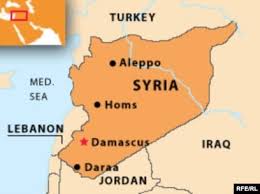As Washington renews its call for a comprehensive resolution to the issue of foreign fighters in Syria—not just their commanders but all non-Syrian combatants—it becomes imperative to revisit the ideological and political roots that continue to obstruct such a move. Central to this dilemma is Ahmed Al-Sharaa, once known as Abu Mohammad al-Jolani, whose transformation from jihadist leader to head of a transitional Syrian authority has done little to alter the fundamental logic of his political project.
Years ago, when he still concealed his identity in interviews, Jolani openly told Al Jazeera’s Ahmed Mansour that foreign fighters made up nearly 30% of Hay’at Tahrir al-Sham (formerly Jabhat al-Nusra). He not only admitted their presence, but declared them an indispensable part of the “jihadist equation”—a core component of the organisation’s ideological DNA. Today, even after rebranding himself as a transitional national leader claiming to have outgrown jihadist ideology, Jolani (now Sharaa) continues to embrace the same logic. His purported intellectual revisions have not translated into a meaningful shift in how he envisions the future of Syria.
The narrative may have evolved—from transnational jihad to nationalist statehood—but the underlying mindset remains rooted in the supranational. Sharaa’s persistent rejection of a “Syrian Dayton,” modeled after the 1995 Bosnia peace accords that disbanded sectarian armies and rebuilt a unified national military, is not merely a political calculation. It is an ideological resistance to losing the support base he spent over a decade cultivating—a network built on jihadist allegiance and transnational loyalty.
Specialised studies on jihadist movements, such as Inside Jihadism by French scholar Frédéric Martel, confirm that foreign fighters are not viewed as political liabilities by jihadist leaders, but as ideological safeguards. They form a disciplined vanguard, often more loyal than local fighters who may be susceptible to familial or societal pressures. In this sense, retaining foreign fighters is not a strategic preference—it is a doctrinal necessity.
Sharaa knows that dismantling this structure, as the Dayton model proposes, would strip him of his final line of defense. Foreign fighters, by virtue of their loyalty to ideology over country, act as his personal buffer against any internal coup or fracture. Removing them would leave him vulnerable not only to his opponents but to dissenters within his own ranks—particularly those who might favour a modern, civic nationalist state over a borderless Islamic project.
This is why the continued presence of foreign fighters is framed as a religious imperative or a jihadist tradition. Such rhetorical violence turns a security liability into an ideological virtue, and effectively hijacks the concept of national sovereignty. The Syrian people are left hostage to a project that has little to do with citizenship or statehood.
Sharaa’s opposition to any “Syrian Dayton” is, therefore, not just about military control. It is about safeguarding the ideological foundations of his authority. Any real restructuring of Syria’s armed forces would require dissolving jihadist legacies, excluding non-Syrian elements, and institutionalising the military on inclusive, national lines. That would spell the end of the Salafi-jihadist model upon which his influence was built.
The international experience bears this out. In 1990s Afghanistan, Arab fighters played a key role in prolonging civil strife after the Soviet withdrawal. Bosnia’s Dayton Accords, by contrast, did more than end war—they mapped out a path for reconstituting the state. Central to that blueprint was the disbandment of rival militias and their merger into a single national force under international supervision. This is precisely what Syria needs—and what Sharaa most fears.
Political theorists such as Olivier Roy have long argued that the radicalisation seen in global jihadism is less a product of religious tradition than of socio-political alienation. Foreign fighters are rarely pious in the conventional sense. Rather, they are often marginalised youth who find in jihadist ideology a surrogate identity—an ideology of revenge rather than one of faith or nationhood. For Sharaa, these are the ideal recruits: disconnected from local allegiances, loyal only to a transnational creed, and indispensable for sustaining a power structure divorced from state or society.
French scholar Gilles Kepel offers a complementary view, arguing that Salafi radicalism itself transforms from a religious current into an ideological apparatus of mobilisation. In this framework, foreign fighters are not just soldiers—they are the ideological gatekeepers of the project. Abandoning them would be tantamount to delegitimising the entire foundation on which Sharaa’s authority rests.
Seen from this angle, his rejection of a Syrian Dayton is not just political recalcitrance; it is existential. Dismantling the foreign fighter network would amount to a theological and ideological self-destruction.
Even Sharaa’s repeated calls for abolishing mandatory military service in Syria must be scrutinised through this lens. Rather than signalling a move toward a modern, civic state, such proposals appear to be functional measures designed to absorb a surplus of foreign fighters into new military institutions. When Syrian youth are sidelined from rebuilding a national army—while foreigners are naturalised, promoted, and embedded in the security apparatus—this is not nation-building. It is jihadist recycling in state attire. A form of demographic engineering that produces an army not loyal to Syria, but to its leader and his vision of a post-national theocracy.
This recalls the warning of Moroccan philosopher Abdallah Laroui, who distinguished between those who build the state from a social contract, and those who reproduce the ummah in the name of religious doctrine.
The current moment—one in which U.S. envoy Dorothy Shea has explicitly called for the dismantling of all foreign-infiltrated military units, and the removal of non-Syrians from leadership positions—could be Syria’s “Dayton moment.” But that opportunity risks slipping away if the international community underestimates the ideological stakes for those who have built their power not on national unity, but on the permanence of foreign fighters and the myths that sustain them.


